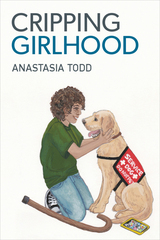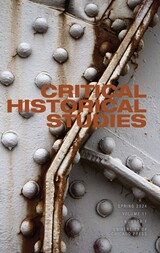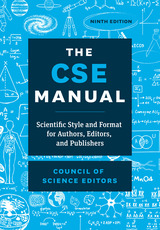179 scholarly books by Tupelo Press and 6
start with N
179 scholarly books by Tupelo Press and 6
179 scholarly books by Tupelo Press
6 start with N start with N
6 start with N start with N

The Nail in the Tree
Essays on Art, Violence, and Childhood
Carol Ann Davis
Tupelo Press, 2020
The Nail in the Tree meditates on crucial subjects in devastating circumstances, exploring how childhood can be violent and generative, how trauma integrates in art and daily life, and what the artist’s role is. In this part memoir, part art-historical treatise, Carol Ann Davis narrates her experience of raising two sons in Sandy Hook, Connecticut, on the day of and during the aftermath of the shooting there. She describes revelations her children come to in the weeks that follow, quietly echoes the words of a principal on that day, and recounts painful series of texts and calls to further and further distant family members. She writes in beautiful, devastating, poetic language.
[more]

Native Voices
Indigenous American Poetry, Craft, and Conversations
Edited by CMarie Fuhrman and Dean Rader
Tupelo Press, 2019
“I write from a continuous space of erasure. Poetry was the one way that I was able to hold onto…my history, geography, and language.” — Craig Santos Perez, contributor
In this groundbreaking anthology of Indigenous poetry and prose, Native poems, stories, and essays are informed with a knowledge of both what has been lost and what is being restored. It offers a diverse collection of stories told by Indigenous writers about themselves, their histories, and their present. It is a celebration of culture and the possibilities of language.
Featuring forty-four poets, including Ishmael Hope, Bojan Louis, Ruby Murray, Simon Ortiz, Leslie Marmon Silko, Luci Tapahonso, Joy Harjo, dg okpik, Sherwin Bitsui, Heid E. Erdrich, Layli Long Soldier, and Orlando White.
Original influence essays by Diane Glancy on Lorca, Chrystos on Audre Lorde, Louise Erdrich on Elizabeth Bishop, LeAnne Howe on W. D. Snodgrass, Allison Hedge Coke on Delmore Schwartz, Suzanne Rancourt on Ai, and M. L. Smoker on Richard Hugo, among others.
And, a selection of resonant work chosen from previous generations of Native artists.
“There really is no better anthology out there that collects indigenous poets publishing from 1960 to the present.” — Dean Rader, co-editor
In this groundbreaking anthology of Indigenous poetry and prose, Native poems, stories, and essays are informed with a knowledge of both what has been lost and what is being restored. It offers a diverse collection of stories told by Indigenous writers about themselves, their histories, and their present. It is a celebration of culture and the possibilities of language.
Featuring forty-four poets, including Ishmael Hope, Bojan Louis, Ruby Murray, Simon Ortiz, Leslie Marmon Silko, Luci Tapahonso, Joy Harjo, dg okpik, Sherwin Bitsui, Heid E. Erdrich, Layli Long Soldier, and Orlando White.
Original influence essays by Diane Glancy on Lorca, Chrystos on Audre Lorde, Louise Erdrich on Elizabeth Bishop, LeAnne Howe on W. D. Snodgrass, Allison Hedge Coke on Delmore Schwartz, Suzanne Rancourt on Ai, and M. L. Smoker on Richard Hugo, among others.
And, a selection of resonant work chosen from previous generations of Native artists.
“There really is no better anthology out there that collects indigenous poets publishing from 1960 to the present.” — Dean Rader, co-editor
[more]

Nemerov's Door
Essays
Robert Wrigley
Tupelo Press, 2021
Nemerov’s Door is a testament to what matters most in Robert Wrigley’s life: love, nature, wild country, music, and poetry. In his youth, Robert Wrigley had little interest in poetry; you even could call it an active disinterest. Then, at the age of twenty-one, after being drafted into the army during the Vietnam War, after receiving an honorable discharge on the grounds of conscientious objection, and feeling otherwise adrift, he took a class in poetry writing, and that class altered the trajectory of his life. Nemerov’s Door is the story of a distinguished and widely celebrated poet’s development, via episodes from his life, and via his examinations of some of the poets whose work has helped to shape his own. Essays on James Dickey, Richard Hugo, Etheridge Knight, Howard Nemerov, Sylvia Plath, and Edwin Arlington Robinson are interwoven with essays about the sources of poetry: arrowheads; wild rivers; and the lyrics of a song from My Fair Lady, among other things. In the essay about Richard Hugo, Wrigley engages with a single poem by his great mentor, whose influence on Wrigley and many other poets of his generation has been enormous. “The Music of Sense” extrapolates from Frost’s notion of the “sound of sense,” and fuses it with Hugo’s notion that the poet, forced to choose between music and meaning, must always choose music. As though to offer his own proof of that notion, one of Wrigley’s other essays here is a poem. In all, the book, described by Joe Wilkins of the High Desert Journal, “is as generous and wise a book as I’ve read in a long, long time.”
[more]

New Cathay
Contemporary Chinese Poetry
Edited by Ming Di
Tupelo Press, 2013
The most up-to-date anthology of contemporary Chinese poetry, translated by American poets and edited by the executive editor of the bilingual literary journal Poetry East West. Showcasing the achievement of Chinese poetry in the last twenty years, a time of tremendous literary ferment, this collection focuses on a diversity of exciting poets from the mainland, highlighting Duo Duo (laureate of the 2010 Neustadt International Prize for Literature) and Liao Yiwu (recipient of 2012 Peace Prize of the German Book Trade organization) along with not yet well-known but brilliant poets such as Zang Di and Xiao Kaiyu and younger poets Jiang Tao and Lü Yue. The anthology includes interviews with the poets and a fascinating survey of their opinions on “Ten Favorite Chinese poets” and “Ten Best-Known Western poets in China.” Featured poets: Duo Duo, Wang Xiaoni, Bai Hua, Zhang Shuguang, Sun Wenbo, Wang Jiaxin, Liao Yiwu, Song Lin, Xiao Kaiyu, Lü De’an, Feng Yan, Yang Xiaobin, Zang Di, Ya Shi, Mai Mang, Lan Lan, Jiang Tao, Jiang Hao, Lü Yue, Hu Xudong, Yi Lai, Jiang Li, Zheng Xiaoqiong, Qiu Qixuan, and Li Shumin. With translations by Neil Aitken, Katie Farris, Ming Di, Christopher Lupke, Tony Barnstone, Afaa Weaver, Jonathan Stalling, Nick Admussen, Eleanor Goodman, Ao Wang, Dian Li, Kerry Shawn Keys, Jennifer Kronovet, Elizabeth Reitzell, and Cody Reese.
[more]

Night Logic
Matthew Gellman
Tupelo Press, 2023
The poems in Night Logic deal with queer coming-of-age and desire, as well as the persistent impact that childhood trauma can have on queer relationship-building. Focusing on the speaker’s longing to be seen, as well as his frequent desire to hide, Night Logic charts the speaker’s journey out of the closet and into an adult world that is both daunting and liberating at once. These confessional poems use the natural imagery of the speaker’s childhood to evoke longing and loss, as the landscape around him functions as both mirror and conduit. Again and again, the poems analyze the role that the closet has played in his struggles with self-articulation, as well as his parents’ divorce and the ways in which that rupture disorients him in his search for connection (romantic or otherwise). Night Logic explores the psychology of suppression in lucid, cinematic detail, presenting an elegant portrait of the pain that often comes with individuation.
[more]

Nothing Can Make Me Do This
David Huddle
Tupelo Press, 2011
Can we ever truly know another person, however well-loved? Brainy, decent, funny, and likeable, the members of Horace Houseman’s family and his closest friend possess quirky and compelling interior lives that they reveal to no one else. Nothing Can Make Me Do This, David Huddle’s tenth work of fiction, enters the minds of Horace, Eve, Hannah, Clara, Bill, and others over fifty years, leaping in chronology an intersecting the vantage points, in a kaleidoscopic vision of a contemporary clan (and their secrets).
[more]
READERS
Browse our collection.
PUBLISHERS
See BiblioVault's publisher services.
STUDENT SERVICES
Files for college accessibility offices.
UChicago Accessibility Resources
home | accessibility | search | about | contact us
BiblioVault ® 2001 - 2024
The University of Chicago Press









